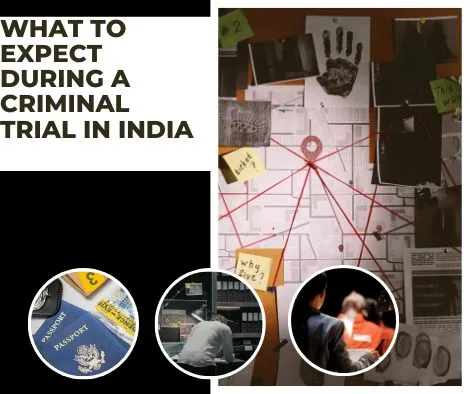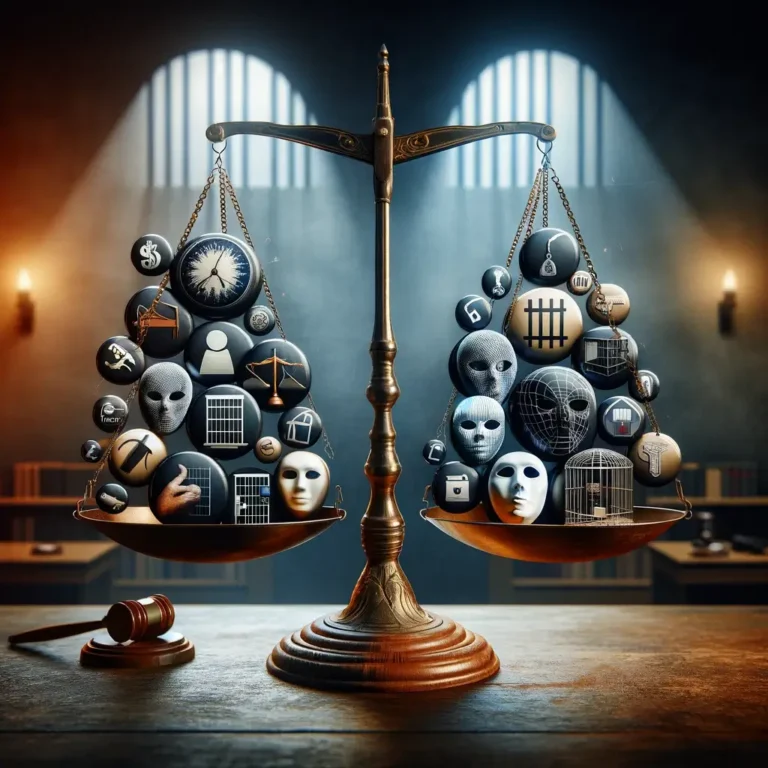This article will give you Understanding of Criminal Law
Introduction
Criminal law is a complex and fascinating field that governs the behavior of individuals and organizations to ensure public safety and justice. It sets out the definitions of criminal offenses, the rules for prosecuting those offenses, and the penalties for those found guilty. This article delves into the core principles and practices of criminal law, offering insights into its fundamental concepts, the legal process, and the impact it has on society.
Understanding Criminal Law: Principles and Practice
Core Principles of Criminal Law
Legality
Legality, or the principle of legality, dictates that a person can only be prosecuted for an act that was a crime at the time it was committed. This principle ensures that laws are clear, publicized, and applied consistently, safeguarding individuals from retrospective penal measures.
Presumption of Innocence in Criminal Law
The presumption of innocence is a cornerstone of criminal law, ensuring that an individual is considered innocent until proven guilty beyond a reasonable doubt. This principle places the burden of proof on the prosecution and protects the rights of the defendant.
Right to a Fair Trial in Criminal Law
The right to a fair trial is fundamental in criminal law, encompassing the right to a public hearing before a competent, independent, and impartial tribunal. It ensures that defendants have adequate time and facilities to prepare their defense and to communicate with legal representation.
Double Jeopardy
Double jeopardy prevents an individual from being tried or punished more than once for the same offense. This principle protects individuals from the stress and injustice of facing multiple prosecutions for the same act.
The Legal Process in Criminal Law
Investigation and Arrest
The criminal legal process begins with an investigation into alleged criminal activity, leading to an arrest if there is sufficient evidence. Law enforcement agencies are responsible for gathering evidence and apprehending suspects.
Charging and Arraignment
After an arrest, the prosecutor reviews the evidence and decides whether to file charges. If charges are filed, the defendant is arraigned and asked to plead guilty or not guilty.
Trial in Criminal Law
If a defendant pleads not guilty, the case proceeds to trial. During the trial, both the prosecution and defense present their evidence and arguments to a judge or jury, who then decides the verdict.
Sentencing
If the defendant is found guilty, the court will determine the appropriate sentence. Sentencing can include imprisonment, fines, community service, or probation, depending on the severity of the offense and the defendant’s criminal history.
Impact of Criminal Law on Society
Criminal law plays a crucial role in maintaining public order, protecting individuals’ rights, and ensuring justice. It deters criminal behavior through the imposition of penalties, rehabilitates offenders, and offers reparation to victims. Moreover, it reflects societal values and changes as society evolves, highlighting the dynamic nature of the law.
Challenges and Future Directions
Balancing Rights and Security
One of the major challenges in criminal law is balancing the rights of individuals with the need for public security. This includes ensuring fair treatment for accused persons while effectively deterring and punishing criminal behavior.
Technological Advances
The rapid advancement of technology presents both opportunities and challenges for criminal law, from cybercrime to digital surveillance. Legal systems must adapt to address new forms of criminal behavior while protecting privacy and civil liberties.
Globalization
Globalization has led to an increase in transnational crimes, such as human trafficking and drug smuggling. This requires cooperation between nations to enforce laws and prosecute offenders across borders.
Conclusion
Understanding the principles and practice of criminal law is essential for appreciating how legal systems work to maintain justice and order in society. By balancing the rights of individuals with the needs of the community, criminal law ensures that justice is served while adapting to the changing dynamics of society. The ongoing challenges of balancing security with liberty, addressing technological advances, and managing globalization underscore the complexity and importance of criminal law in today’s world.
FAQs on Understanding Criminal Law: Principles and Practice
- What is criminal law?
Criminal law is the body of law that pertains to crime. It regulates social conduct, proscribes threatening, harming, or otherwise endangering the health, safety, and moral welfare of people. - What are the main principles of criminal law?
The main principles include legality, presumption of innocence, right to a fair trial, and protection against double jeopardy. - What does the principle of legality mean?
The principle of legality means that a person can only be prosecuted for actions that were illegal at the time they were committed. - What is the presumption of innocence?
The presumption of innocence is a legal right of the accused in a criminal trial to be considered innocent until proven guilty. - Why is the right to a fair trial important?
It ensures the accused individual’s rights are protected, and justice is accurately served, preventing miscarriages of justice. - Can a person be tried twice for the same crime?
No, the principle of double jeopardy protects individuals from being tried twice for the same offense. - What happens during the investigation phase of a criminal case?
Law enforcement investigates the alleged crime, gathers evidence, and may arrest suspects based on the evidence collected. - What is an arraignment?
An arraignment is a court proceeding in which the charges are read to the defendant, and they are asked to enter a plea. - What options do defendants have for their plea?
Defendants can plead guilty, not guilty, or, in some jurisdictions, no contest (nolo contendere). - What is the role of a jury in a criminal trial?
A jury examines the evidence presented during the trial to determine whether the defendant is guilty or not guilty. - What factors influence sentencing in a criminal case?
Factors include the severity of the crime, the defendant’s criminal history, and the circumstances surrounding the crime. - What is the difference between a misdemeanor and a felony?
Misdemeanors are less serious crimes typically punishable by fines or imprisonment for less than a year, while felonies are more serious crimes with harsher penalties. - Can victims participate in the criminal justice process?
Yes, victims often have the right to be informed, present, and heard at various stages of the justice process. - What is restorative justice?
Restorative justice is an approach to justice that focuses on the rehabilitation of offenders through reconciliation with victims and the community. - How do international laws affect criminal law?
International laws, such as treaties and conventions, can influence domestic criminal laws, especially concerning crimes that cross international boundaries. - What is cybercrime and how is it prosecuted?
Cybercrime involves illegal activities conducted via the internet. It’s prosecuted under specific laws that address digital offenses. - How does one become a criminal lawyer?
Becoming a criminal lawyer requires completing law school, passing the bar exam, and often gaining experience through internships or clerkships in criminal law. - What rights do defendants have in criminal trials?
Defendants have numerous rights, including the right to counsel, the right to remain silent, and the right to a speedy and public trial. - What is bail, and how is it determined?
Bail is an amount of money or form of property that is deposited to ensure the accused returns to court. It’s determined based on factors like the severity of the crime and the risk of flight. - Can criminal records be expunged?
In some cases, criminal records can be expunged, meaning they are sealed or erased, depending on the jurisdiction and the nature of the crime. - What is the purpose of punishment in criminal law?
Punishment serves various purposes, including deterrence, rehabilitation, retribution, and societal protection. - How do plea bargains work?
A plea bargain is an agreement where the defendant pleads guilty to a lesser charge in exchange for a lighter sentence or the dropping of other charges. - What is a public defender?
A public defender is a lawyer appointed by the court to represent defendants who cannot afford private counsel. - What is the difference between criminal law and civil law?
Criminal law deals with behavior that is an offense against the state or society, whereas civil law deals with disputes between individuals or organizations. - How are juvenile offenders treated differently?
Juvenile offenders are often subject to different laws and court procedures, focusing more on rehabilitation than punishment. - What are hate crimes, and how are they punished?
Hate crimes are criminal acts motivated by bias or prejudice. They often carry enhanced penalties. - What is the insanity defense?
The insanity defense is a legal defense where the defendant claims they were unable to understand the nature of their actions or distinguish right from wrong due to mental illness. - Can a conviction be appealed?
Yes, convictions can be appealed if there are grounds to believe there was a legal error that affected the trial’s outcome. - What is extradition?
Extradition is the process of one jurisdiction surrendering an individual to another jurisdiction where they are accused or convicted of a crime. - How does criminal law protect the rights of individuals?
Criminal law protects individuals’ rights by ensuring fair treatment under the law, protecting against arbitrary detention, and upholding due process rights.
















